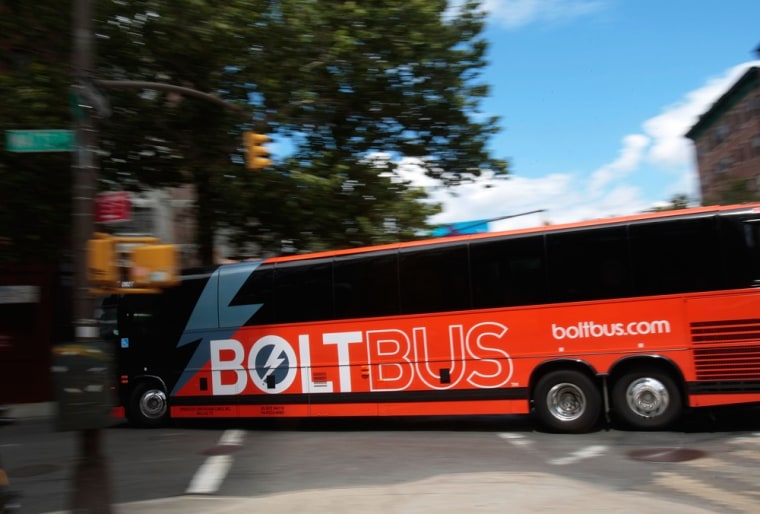When choosing a place to buy a meal or spend the night, most travelers say the availability of free Wi-Fi is now a factor in their choice of venue.
The increase in free public hotspots should make it easier for travelers to make those choices quickly. After all, thousands of McDonald's and Starbucks now offer free Wi-Fi. So do dozens of hotel chains and, according to a recent survey, 90 percent of bed and breakfasts.
Wi-Fi access is complimentary at an increasing number of small and large airports, on Amtrak’s Acela Express trains and at New York’s Penn Station, Washington D.C.’s Union Station and several other major train stations along the Northeast Corridor.
Travelers can even find free hotspots out in the woods. In addition to offering a free map of "Twilight" locations in and around rural Forks, Wash., the Forks Visitor Center offers fans of the popular vampire books and movies free wireless Internet access. “Just look for Bella’s red truck parked out front and open your laptop,” said Diane Schostak, executive director of the Olympic Peninsula Visitor Bureau.
But finding reliable Wi-Fi on the road can still be hit or miss.
"Even though about 30 percent of the rest stops had signs saying Wi-Fi was available, no rest stop had Wi-Fi that worked," said Shay Olivarria, who drove across the country on a business trip over the summer.
At airports where Wi-Fi is not yet free, GateGuru CEO Daniel Gellert said users of his popular airport iPhone app often leave negative reviews, telling the airport it’s time to catch up. “And when travelers do pay for the service,” Gellert added, “they often find a signal that’s fairly weak. Then they feel ripped off.”
And that free Wi-Fi advertised at the inn? Sometimes guests arrive to discover the signal doesn’t extend beyond the lobby.
“Yes, there’s an upswing in places offering free Wi-Fi. But because of issues with connecting, getting the password, speed, etc., it’s not the most reliable way to get business done,” said Jeff Jacobs, who travels frequently for his job with an Ohio design and branding firm.
Wanted: Free-flowing Wi-Fi
"Wi-Fi is like hot water," said auther and travel expert Tim Leffel. "It should be a given, not an extra."
Most travelers seem to agree. In a recent survey conducted by the research firm In-Stat, 64 percent of those polled said they’d choose a venue (hotel, restaurant, etc.) with free Wi-Fi over one that didn’t. “In fact, more than half of the respondents said they currently use only free Wi-Fi venues," said In-Stat Market Analyst Amy Cravens. "That’s very significant and will be an important part of business models going forward.”
Andy Abramson, CEO of a marketing communication agency in California, said Wi-Fi is “no longer a ‘nice to have,’ but a very important part of my hotel-stay decision making.” Yet he often purchases a paid Wi-Fi service instead of gambling on unreliable free hotels services in what he calls “Wi-Fi roulette.”
Dirk Gates, CEO and founder of Xirrus, a Wi-Fi technology company, attributes poor Wi-Fi experiences to “companies that have left first generation Wi-Fi systems in operation far too long, yet still treat it as a ‘paid-for convenience’ instead of the ‘necessary utility’ it has become.”
While many hotels and conference venues are updating and improving their Wi-Fi infrastructure, Gates said his company is increasingly being asked about setting up tiered services, like those currently being tested at some InterContinental Hotels. “We have seen this sort of implementation at several Starwood properties, primarily at a franchisee level; not as a corporate directive,” he said. “And we’ve seen it advertised as 24 hours of basic service at price range of free to $15 or a high performance service for $10 to $25.”
But now that free Wi-Fi is being offered in more places and there are more options for accessing the Internet with smartphones and other devices, business travelers may find they really don’t need to pay.
Follow that bus!
On a recent business trip to Denver, Dustin Floyd of Deadwood, S.D., stayed in what he called “a nice business class hotel where Internet access cost nearly $20 a day.” Instead of using the hotel’s Wi-Fi network though, Floyd discovered that he could easily connect to a free connection from the Best Western next door. “Many business accommodations seem to think of us professionals as cash cows. But that doesn’t reflect reality,” said Floyd.
Nor does it account for ingenuity.
In New York City, GroundLink has wired up 200 limos and other cars with Wi-Fi transmitters that allow multiple users to access free Wi-Fi inside the car and from up to 400 feet away from the vehicles, which spend a lot of time idling on city streets. The company plans to have more than 1,000 city vehicles wired for free service by the end of the year.
Michael Prichinello, director of Classic Car Club Manhattan, said he has a co-worker drive when he needs to travel to Boston for business, and instructs him to keep an eye out for a BoltBus. The popular low-cost division of Greyhound Lines operates in Boston, Baltimore, Philadelphia, New York City and Washington, D.C. and offers its passengers plug-ins and free Wi-Fi access.
“You can always find them,” Prichinello said. “And if you drive next to them or behind them, you can get pick up the free Wi-Fi that they have onboard.”
BoltBus spokesperson Timothy Stokes said he doesn’t think following a bus in order to pick up free Wi-Fi is safe, nor does he think it’s possible. But Prichinello insists there’s no danger.
“It’s safe because we're always in traffic on the highway and moving slowly. It just requires the driver to drive defensively and not give up our proximity to the bus.”
